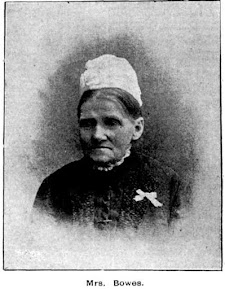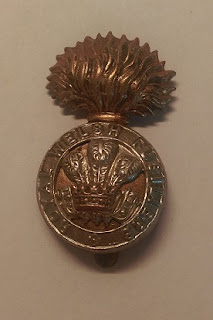Bravery in Numbers
Today's blog is one about a
woman of service who gave her life for her country. She was one of the victims
of a horrendous massacre during WW2 which causes shock upon reading all these
years later.
FLORENCE AUBIN SALMON
Florence was born on 20th
October 1915, the second child of John Henry Salmon and his wife Florence (nee
Aubin). The family lived in Punchbowl a southwestern suburb of Sydney and were
members of the Methodist Church.
There is not a great deal on
public record about Florence's early life, but we do know she passed her Nurses
Registration Board exams whilst at the War Memorial Hospital in Waverley.
Originally the private residence and grounds of property owned by Ebenezer
Vickery, the estate was donated as a war hospital in 1919 opening its doors to
its first patients after internal modifications in 1921.
Florence enlisted in the Australian Army Nursing Service at Victoria Barracks in Sydney in February 1941 for home service and was placed at Bathurst in the Central West of NSW. In May 1941 she was called up as a reinforcement for the 2/10th Australian General Hospital (AGH) that was stationed in Malacca in Malaya. Florence sailed to Singapore on the 24th of July and once she arrived, she joined her new unit at Malacca. At times she was seconded to work with the Casualty Clearing Station. She was with the 2/10th AGH when most of the staff were evacuated to Singapore in late January 1942 due to the advance of the Japanese invasion force.
On the 8th of February with
surrender facing them it was decided to move the nurses and as many casualties
aboard any vessels they could find. By the 10th of February two ships were loaded
with the remaining 65 nurses ordered to be evacuated aboard the SS Vyner
Brooke.
The ship built to carry 12
passengers soon became incredibly overcrowded with more than that number of people
plus the nurses. Soon after departure the vessel was steered into a minefield
and forced to stop for the night. The next night they reached the Banka Strait.
At this time, it came under fire and after taking three direct hits began to
sink and the order was given to abandon ship.
Pandemonium broke out on
board as no sooner had survivors entered the sea they were picked out by enemy
pilots. All night long exhausted survivors from the Vyner Brooke and other
shipwrecks gathered on Radji Beach on Banka Island. The numbers had dwindled to
60 men and women and 22 nurses. A fierce gun battle took place out at sea and
later a lifeboat carrying British servicemen came ashore. The number of survivors
then increased to 100.
The group decided to
surrender to the Japanese and a small group left to search for the enemy. Other
women left to search for food. The nurses remained with the injured.
Soon after the Japanese
soldiers arrived. They ordered half the men to stand and marched them at
bayonet point down to the beach and out of sight. A few minutes later they
returned for the remaining men.
Upon their return the
Japanese soldiers sat down, cleaned their bayonets and when they had finished, sexually assaulted most of the nurses (this fact only coming to light in 2019 after
being suppressed by the Government of the day). Afterwards they motioned for
the women to stand up and soon the soldiers began pushing them towards the
surf. The women stood in a straight line facing the horizon still wearing their
Red Cross emblems on their sleeves which were supposedly to protect them. They
didn’t cry, whimper or attempt to run away. When they reached waist deep water
the Japanese opened fire with a machine gun and mowed them down. The soldiers
then went back and bayonetted the remaining injured patients.
We have such a detailed
account of the atrocity due to the one eyewitness who survived, Vivian Bullwinkel,
who although nursing a wound from being shot in the diaphragm and playing
"dead" made her way into the nearby springs and was found by an
Englishman. They were both captured and taken as Prisoners of War but only Vivian survived
after spending three years in the camp. She gave evidence at the International
Military Tribunal for the Far East in 1947.
This massacre was one of the
most horrific of the War as it was perpetrated outside of battle and upon those
who could not defend themselves.
A memorial service was held
at the War Memorial Hospital on 28th October 1945 for Florence Salmon and
another nurse who had also graduated from the Hospital. A
"Window of Memory" dedicated to nurses is to be found at the
Hospital.
Florence is dedicated on the
grave of her parents in the Methodist area of Rookwood not far from the
Catholic office.
The family's suffering only
increased when after losing their daughter in such horrific circumstances aged
just 26, their son Leonard was reported "lost at sea" on the HMAS
Centaur some 80 years ago in May 1943 at the age of 30. The merchant vessel
that had been converted to a hospital ship was downed by a torpedo just near
Moreton Island Queensland with most losing their lives.
Detail of memorial to children on parent's grave - photograph author's own
Last year the Australian College of Nursing Foundation announced it was establishing a scholarship in the name of each of the 21 nurses who died in the Bangka Island Massacre, in addition to leading the fundraising to erect a sculpture of Vivian Bullwinkel in the grounds of the Australian War Memorial (AWM). That sculpture was recently unveiled at the AWM, the first depicting a woman to be erected there. I know it won't be the last.
Once again, I have to say,
War has no winners, only losers.
They sacrificed their lives for ours. Their bravery lives on.
Lest We Forget
I have drawn on a number of
references for today's blog: Ancestry.com, AWM files, "Brave Women"
by Dorothy Angell, Wikipedia and other sources.
If you have any comments
regarding this blog please add them below or at the Facebook group page which
can be found under
rookwoodcemeterydiscoveries
or send me a personal
message at my email address.
lorainepunch@gmail.com


.jpg)







What bravery all those women showed against the enemy. 😥
ReplyDeleteIncredible woman; never forgotten
Delete